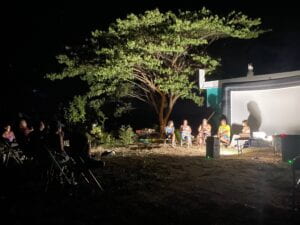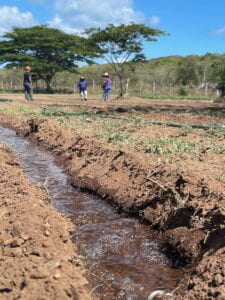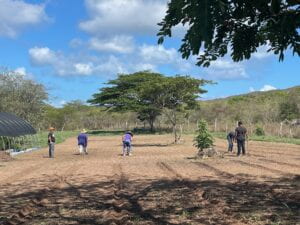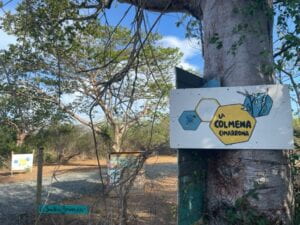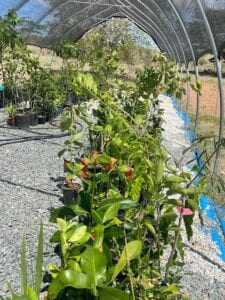Karen Santos, HASER/La Colmena Cimarrona. Vieques, PR.
People are surprised when I tell them there’s no hospital in Vieques. A couple were even skeptical. They rushed to pull their phones out and google if what I said was actually true. Can one argue that Viequenses are being displaced not only because of natural disasters (that destroyed a weakened infrastructure due to colonial exploitation) and climate change but also because of Human Rights violations? Some of the more pressing Human Rights issues are regarding the access to proper public transportation (affecting the mobility of a community that must get to the Big Island to visit doctors and even to buy food. Also concerning is the absence of medical care (read more about Jaideliz Moreno Ventura’s case here) or the attack on their education system. Many public schools are closed every year. In contrast, charter ones seem to be in vogue (read more here ). The lack of services in Vieques is certainly a Human Rights violation. And it is intentional. They are pushing Viequenses out of their land. They don’t want them there.
But who are they?
New outside investors are buying more and more land on the island, attracted by paradisaic beaches and generous tax breaks. They come to Vieques paying exorbitant prices and paying in cash. Viequenses, and Puerto Ricans in general, soon run out of housing options (rent or buying), as they can’t keep up with such high prices. These new settlers are driving entire communities out (read more about gentrification in Puerto Rico here).
With all these traumatic situations unfolding every day, I keep thinking about how Human Rights (discourses and organizations focused on them) allow communities to try to influence and take control over the issues that directly affect them. In many cases, communities can only access resources or interact with the State through NGOs. But let’s remember, Human Rights are obligations for governments. It is the government’s responsibility to promote and protect them. In the case of Puerto Rico local officials must act to address Human Rights issues, but especially the United States must assume its responsibility. Not only because of its colonial power status and its effects on the archipelago, but also because of the implementation of measures like PROMESA and La Junta. There’s literature on how austerity plans, like those implemented in Puerto Rico by La Junta, threaten Human Rights and can result in their violation (read more about austerity plans and Human Rights in Greece, office of the High Commissioner on austerity measures).
Despite such harsh conditions, Viequenses are finding ways to organize themselves and fight for their rights. La Colmena Cimarrona is an example of that. They know the fight will be long and hard, but they’re ready. Ready to feed Vieques and build a better country. The country they want.
